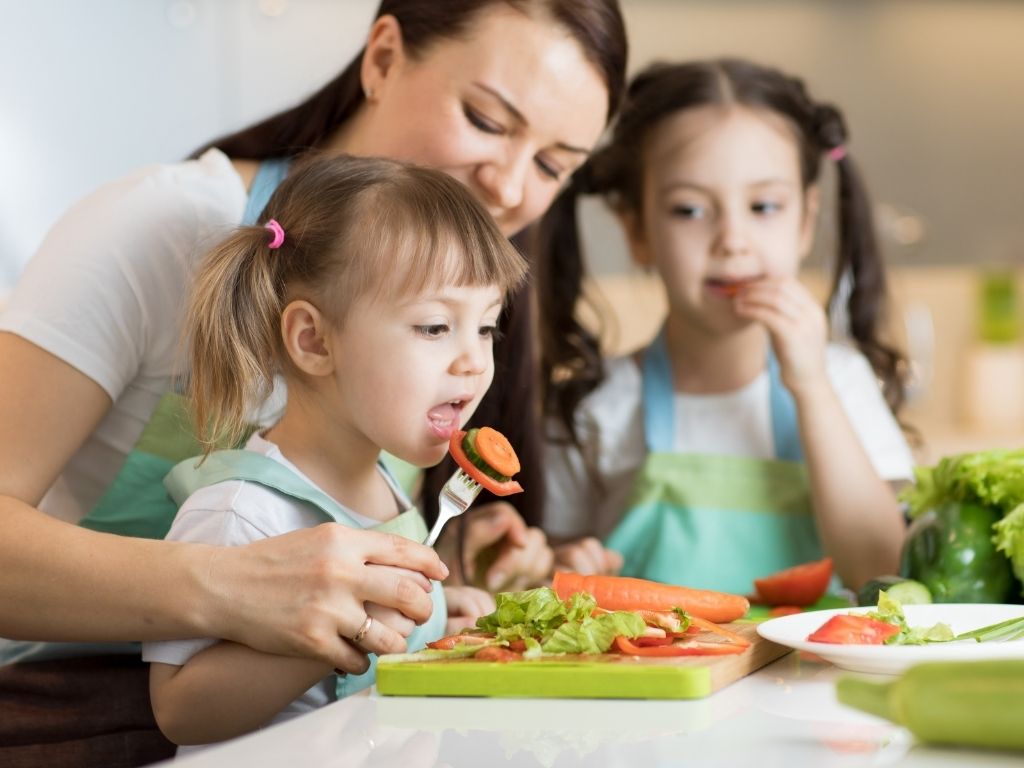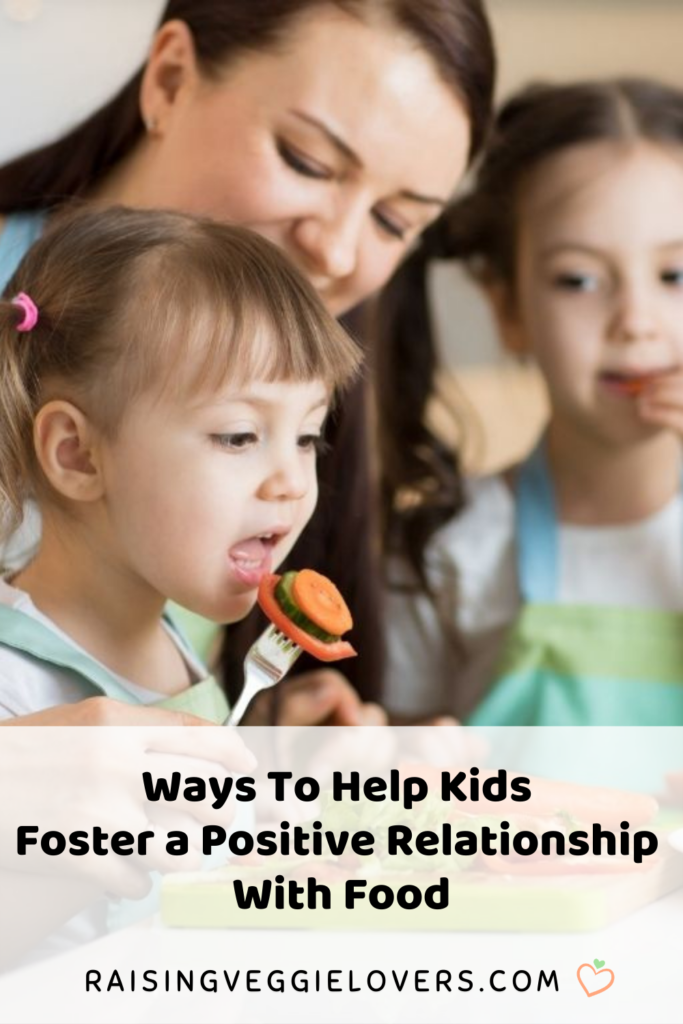As an Amazon Associate, I earn from qualifying purchases. This post may contain affiliate links. Read my disclosure policy.

Many people may not realize that they learn their relationship with food throughout childhood. An adult who constantly counts their calories or associates food with their emotions may have learned that behavior from the people they were around as kids.
Of course, we want better for our children, which means it’s time to start instilling healthy food habits within them. Here are a few ways to help kids foster a positive relationship with food so they can grow up to be happy, healthy, and strong.
Respect Their Fullness
As children, we may have been at the dinner table and felt so full we couldn’t eat another bite, but our parents would say, “finish all your food,” or, “clear your plate.” While they saw it as a way to avoid wasting food, that kind of push can plant seeds of unhealthy relationships with food.
Instead of asking your child to take one more bite, try asking them if they’re full. If they say yes, try storing their leftovers for the next day. That way, they can enjoy it again—this also teaches them not to waste!
Avoid Using Food as a Reward
When kids do something well, it’s easy for us parents to offer treats as a reward. “If you do well in school today, we’ll get some ice cream!” Unfortunately, it can cause children to connect their emotions and accomplishments with food, which could have negative effects in the future.
If your child does something you’re proud of, try rewarding them with stickers, a new toy, or even taking them out to do something fun together! Food only lasts for a moment, but memories last forever.
Eat Together
Studies show that sitting down and eating together as a group promotes bonding and more sensible eating habits. Children will mimic what you eat and how you react to certain foods, so it’s important to eat healthy meal together.
Educate Them
Instead of saying, “this food is good/bad,” try informing them of what’s in the food. For example, if you’d like them to eat more carrots, tell them how carrots have many vitamins that can help strengthen their bones!
Associating food with their health benefits is more impactful and can encourage them to eat foods that benefit their bodies.
It’s essential to know how to encourage healthy snacking in kids because they’re like sponges—what they learn throughout their childhood is what they bring into adulthood.
When you help kids foster a positive relationship with food, you empower them to control their bodies and what they eat, which is an important skill to grow and develop into healthy adults!
You may also enjoy these healthy food tips:

As always, sharing is caring! Please click on the buttons below to share this post with your friends!
